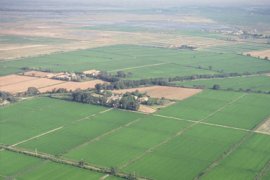Reconnecting fragmented habitat of wildlife and enhancing ecosystem services: the RIMBA corridor in Sumatra

In the last decades deforestation and degradation in Sumatra has reduced the quality of habitat for wildlife and reduced the availability of ecosystem services such as the quality of drinking water. Under the RIMBA corridor project the Copernicus Institute of Sustainable Development and WWF aim to establish the most suitable habitat connectivity for large mammals between patches of protected forest, production forest and other land uses. We hypothesise that by establishing a suitable corridor for large mammal wild life species local ecosystem services quantity and quality will be enhanced as an additional benefit. In our research we investigate two models: the Habitat Quality of Integrated Valuation Ecosystem Services and Trade off (InVEST) (created by the Natural Capital Project of Stanford University, Minnesota University, The Nature Conservancy and WWF) and the Corridor Design model (created by Northern Arizona University). The RIMBA corridor implementation will be funded by the UNDP-GEP and is expected to start in 2016.
The project is carried out by Thomas Barano Sulistyawan MSc. in collaboration with Dr. Pita Verweij and Prof. dr. René Boot; and is funded by Copernicus Institute of Sustainable Development and WWF.



